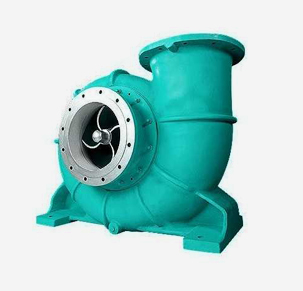English
- Afrikaans
- Albanian
- Amharic
- Arabic
- Armenian
- Azerbaijani
- Basque
- Belarusian
- Bengali
- Bosnian
- Bulgarian
- Catalan
- Cebuano
- Corsican
- Croatian
- Czech
- Danish
- Dutch
- English
- Esperanto
- Estonian
- Finnish
- French
- Frisian
- Galician
- Georgian
- German
- Greek
- Gujarati
- Haitian Creole
- hausa
- hawaiian
- Hebrew
- Hindi
- Miao
- Hungarian
- Icelandic
- igbo
- Indonesian
- irish
- Italian
- Japanese
- Javanese
- Kannada
- kazakh
- Khmer
- Rwandese
- Korean
- Kurdish
- Kyrgyz
- Lao
- Latin
- Latvian
- Lithuanian
- Luxembourgish
- Macedonian
- Malgashi
- Malay
- Malayalam
- Maltese
- Maori
- Marathi
- Mongolian
- Myanmar
- Nepali
- Norwegian
- Norwegian
- Occitan
- Pashto
- Persian
- Polish
- Portuguese
- Punjabi
- Romanian
- Russian
- Samoan
- Scottish Gaelic
- Serbian
- Sesotho
- Shona
- Sindhi
- Sinhala
- Slovak
- Slovenian
- Somali
- Spanish
- Sundanese
- Swahili
- Swedish
- Tagalog
- Tajik
- Tamil
- Tatar
- Telugu
- Thai
- Turkish
- Turkmen
- Ukrainian
- Urdu
- Uighur
- Uzbek
- Vietnamese
- Welsh
- Bantu
- Yiddish
- Yoruba
- Zulu
Telephone: +86 13120555503
Email: frank@cypump.com
Sep . 03, 2024 21:51 Back to list
submersible sewage water pump
Understanding Submersible Sewage Water Pumps
Submersible sewage water pumps are vital components in modern wastewater management systems. These specialized pumps are designed to operate while fully submerged in sewage, making them ideal for a variety of applications, including municipal wastewater treatment, industrial facilities, and residential systems.
How Submersible Sewage Water Pumps Work
The primary function of a submersible sewage water pump is to transport sewage and wastewater from one location to another, typically from lower to higher elevations. The pump is hermetically sealed and comes equipped with an electric motor that drives an impeller. When the pump is submerged, the impeller creates suction, drawing wastewater into the pump and through the discharge pipe. This mechanism allows sewage to be efficiently lifted out of basements, pits, or underground tanks.
Key Features and Benefits
One of the standout features of submersible sewage pumps is their ability to handle solids and debris. Unlike standard pumps, these submersible options can handle larger particles and viscous materials, thanks to their robust, abrasion-resistant design. This makes them excellent for environments where waste may contain a mix of solids, such as fat, paper, and other organic matter.
Another advantage is their space-saving design. These pumps can be installed in remote or confined locations where traditional pumps would be impractical. Additionally, because they are submerged, they operate more quietly than surface-mounted pumps, reducing noise pollution in residential or commercial areas.
submersible sewage water pump

Applications of Submersible Sewage Water Pumps
Submersible sewage water pumps are widely used in various settings. In municipal sewage treatment plants, these pumps manage the inflow of wastewater for treatment. In commercial settings, they can effectively transfer sewage from restrooms and kitchens to the main sewer line. Residentially, submersible pumps are often used in basement sump systems to prevent flooding by removing excess water.
Industrial applications include mining operations and construction sites, where these pumps manage wastewater generated during processes. They are also critical in sewer bypass operations, where temporary solutions are needed to redirect sewage flow during repair or maintenance.
Choosing the Right Submersible Sewage Water Pump
When selecting a submersible sewage water pump, considerations include flow rate, head pressure, and the specific characteristics of the wastewater being pumped. It's essential to choose a pump with the right horsepower and build quality to ensure efficient performance and longevity.
In conclusion, submersible sewage water pumps play an indispensable role in maintaining hygiene and sanitation in various environments. With their ability to handle challenging waste conditions and their efficient operation, they ensure that wastewater management systems function effectively, safeguarding public health and the environment. Investing in a reliable submersible pump is crucial for any facility that aims to manage sewage and wastewater efficiently.
-
ISG Series Vertical Pipeline Pump - Chi Yuan Pumps | Advanced Engineering&Industrial Efficiency
NewsJul.30,2025
-
ISG Series Pipeline Pump - Chi Yuan Pumps | High Efficiency, Energy Saving
NewsJul.30,2025
-
ISG Series Vertical Pipeline Pump-Chi Yuan Pumps|High Efficiency&Reliable Performance
NewsJul.29,2025
-
ISG Series Vertical Pipeline Pump|High Efficiency&Low Noise
NewsJul.29,2025
-
ISG Series Vertical Pipeline Pump - Chi Yuan Pumps Co., LTD.|High Efficiency, Energy Conservation, Low Noise
NewsJul.29,2025
-
ISG Series Vertical Pipeline Pump-Chi Yuan Pumps Co., LTD.|High Efficiency&Energy-Saving
NewsJul.29,2025










